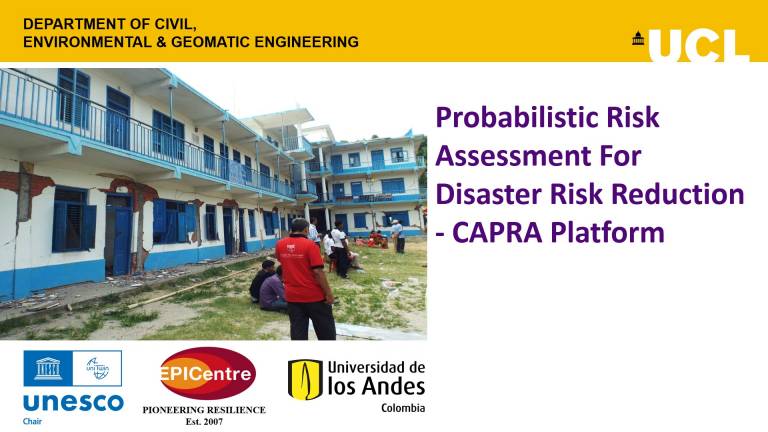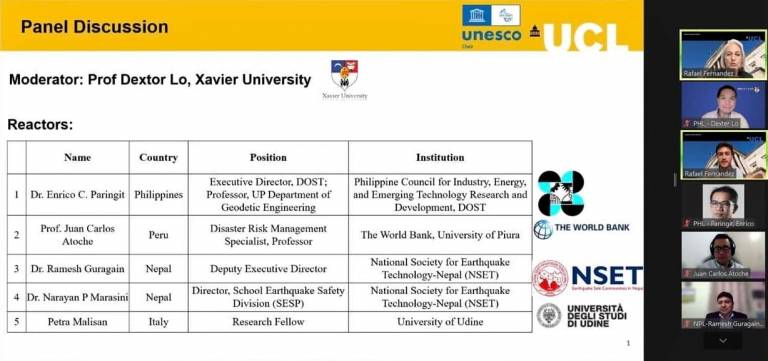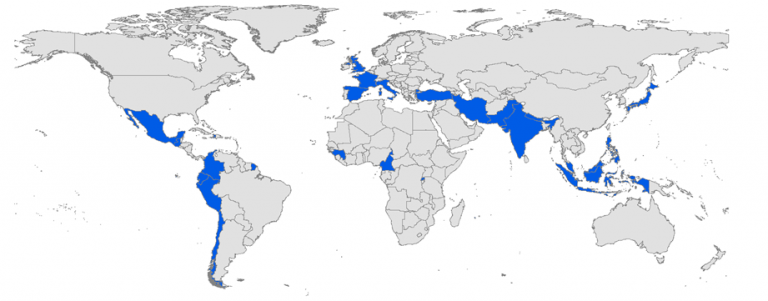Probabilistic Risk Assessment for Disaster Risk Reduction - CAPRA Platform
11 April 2022
The short online training course titled ‘Disaster risk assessment for disaster risk reduction in school infrastructure – CAPRA platform’, was delivered by the UNESCO Chair in Disaster Risk Reduction and Resilience Engineering (DRR&RE) at UCL.

The short online training course titled ‘Disaster risk assessment for disaster risk reduction in school infrastructure – CAPRA platform’, was successfully delivered by the UNESCO Chair in Disaster Risk Reduction and Resilience Engineering (DRR&RE) at University College London (UCL) on April 7th, 2022.
The event began with an introductory presentation by the Chair Prof. Dina D’Ayala, UCL EPICentre, outlining the aims and objectives of the UNESCO Chair in DRR&RE and associated ongoing activities. This was followed by Prof. Juan Francisco Correal from Universidad de Los Andes (Colombia) who presented the CAPRA platform and how it can be used for the probabilistic disaster risk assessment at territorial scale. Then, Mr. Rafael Fernández from Universidad de Los Andes (Colombia) presented a one-hour long lecture on the methodology and components of the probabilistic disaster risk assessment and the development of viable strengthening strategies, with example application to the national level school infrastructure in developing countries such as El Salvador and Dominican Republic. The event benefitted by the critical comments and suggestions from a panel of reactors that included Dr. E. C. Paringit (Department of Science and Technology, Philippines), Prof. J. C. Atoche (The World Bank), Dr. R. Guragain (National Society for Earthquake Technology, Nepal), Dr. N. P. Marasini (National Society for Earthquake Technology, Nepal), and Dr. P. Malisan (University of Udine, Italy) in a lively discussion session moderated by Prof. Dexter Lo (Xavier University, Philippines).
Access Recording of CAPRA Training Session


Participants distribution from all around the world
About 200 people from several countries across the world participated in this very first short course organized by the UNESCO Chair in DRR-RE at UCL. We want to thank all participants and reactors for their interest and engaging discussion. As part of the Chair’s activities, we will be organizing seminars and training courses on a regular basis, the relevant announcements will be made via the UNESCO Chair web pages and social media.
Links
 Close
Close

